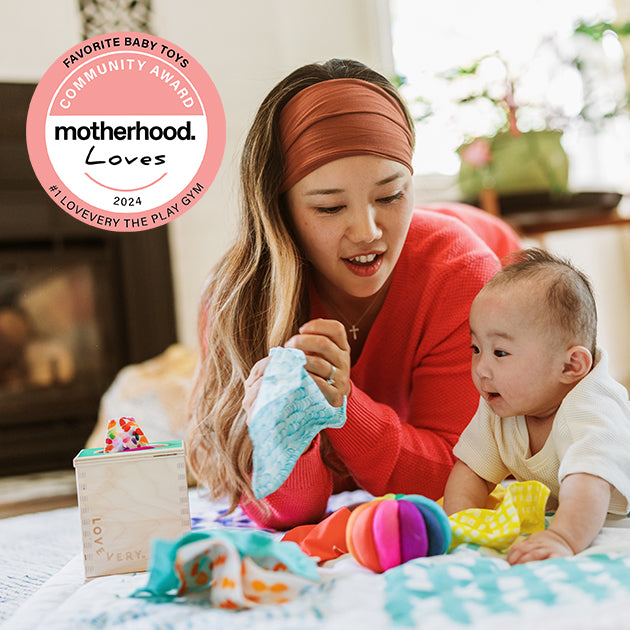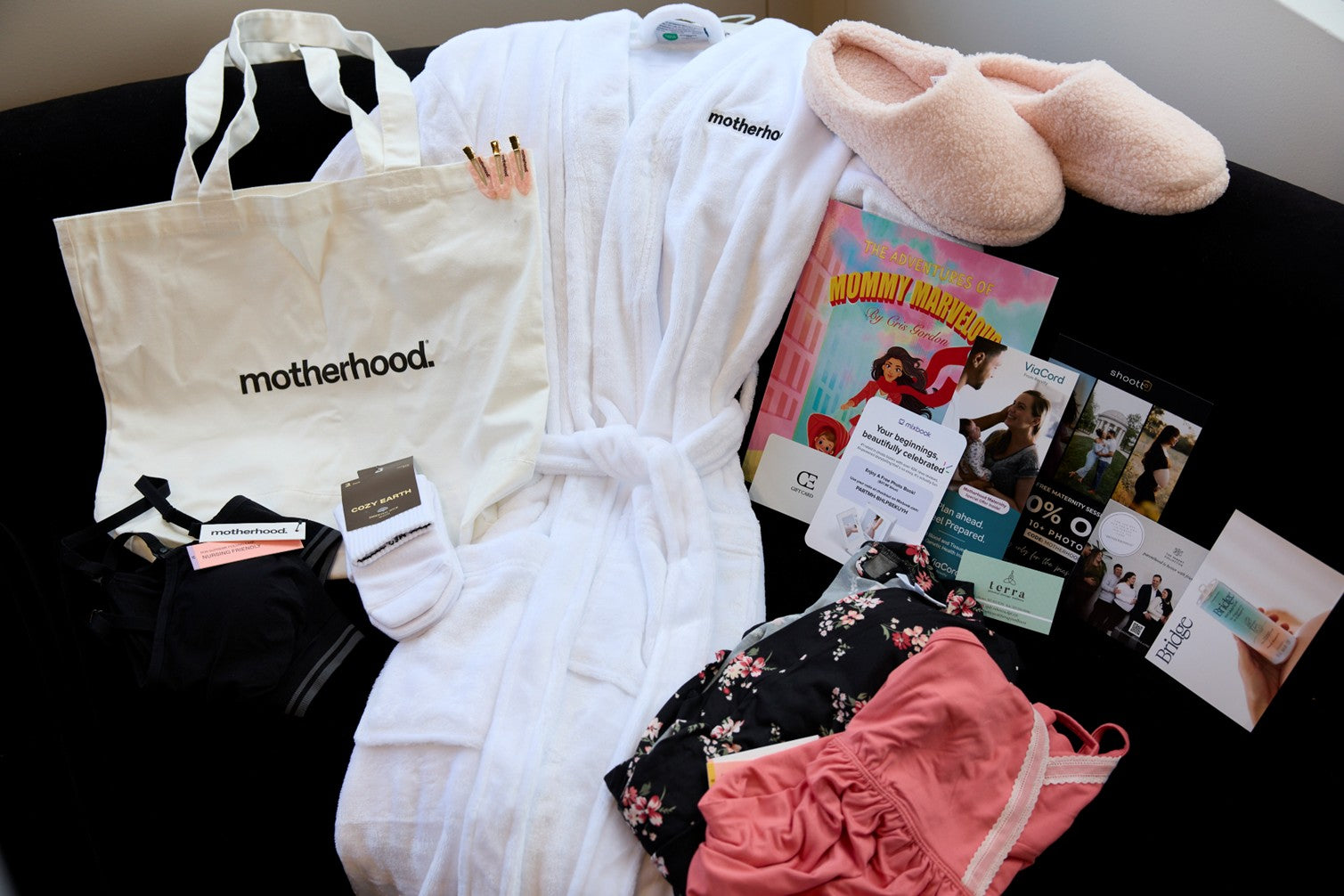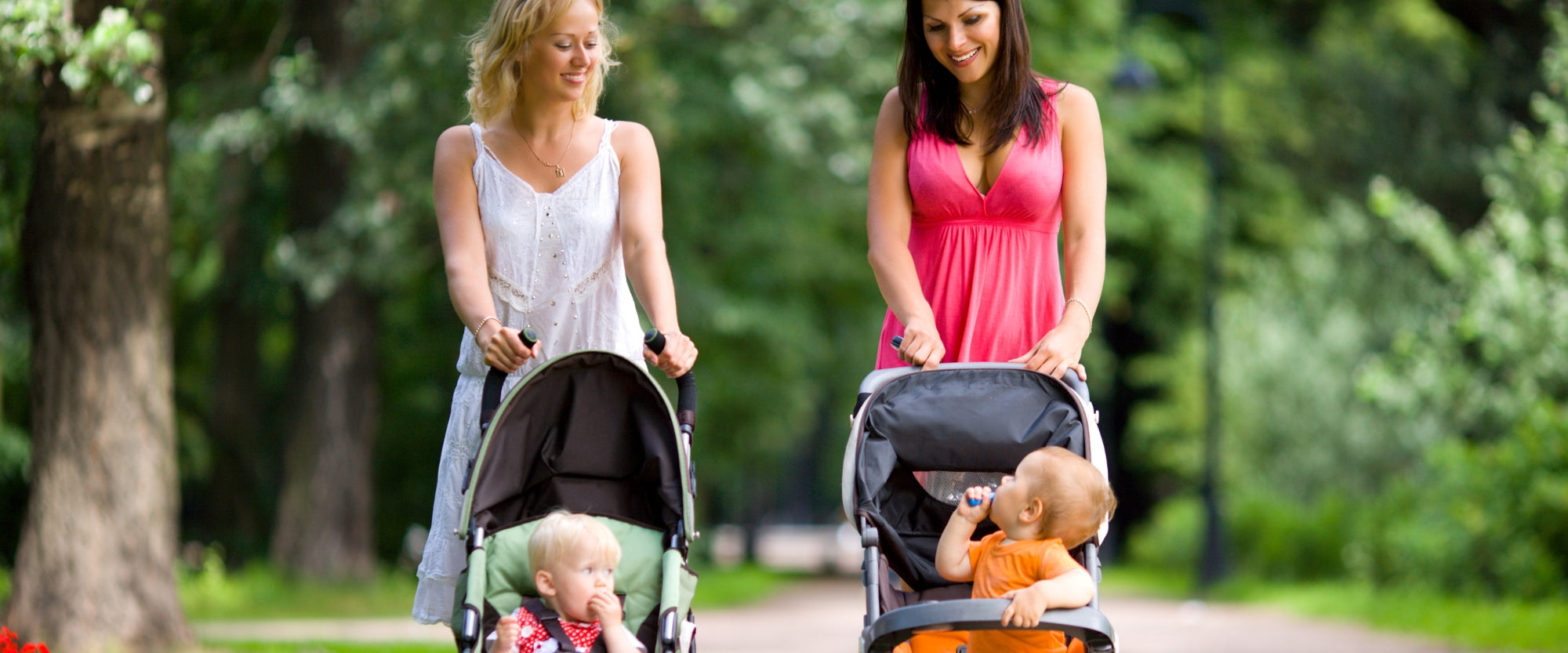Congratulations and welcome to the thrilling first trimester of your pregnancy journey! Get ready for a whirlwind of emotions as you dive into a period filled with anticipation, pure joy, and yes, a touch of understandable anxiety too.
The first trimester typically spans the first 12 weeks of pregnancy. The first three months of your pregnancy are an exciting and critical time when major developments occur for both you and your little one.
These early weeks are also a time of many questions. What should you expect? How can you best prepare for the baby? What are the essentials for this stage?
We’ll help you navigate the early weeks of your motherhood journey by focusing on the essentials. From health considerations to lifestyle adjustments, we’ve got you covered!
Confirming Your Pregnancy and Initial Steps
First things first, you found out you're pregnant! What do you need to do next?
It’s time to schedule an appointment with an OBGYN or midwife so they can walk you through the initial steps.
Here are three key steps to take:
- Schedule your first prenatal visit
- Start taking prenatal vitamins, especially folic acid
- Begin adjusting your diet and lifestyle for pregnancy
Remember, every pregnancy is unique, and there’s no one-size-fits-all. It's important to listen to your body and seek professional advice tailored to your specific needs.
Schedule & Manage Your Prenatal Visits
Your first prenatal visit is a significant milestone in your pregnancy journey, typically scheduled around the 8th week of pregnancy.
Be sure to do research and find an OBGYN you're comfortable with. After all, you’ll be on this emotional journey with them for the next nine months, and it's critical you feel at ease. Make sure to choose a provider that aligns with your birthing plan and preferences.
During this first visit, your doctor will confirm your pregnancy, estimate your due date, and discuss your health history.
Research Cord Blood Banking
Now is the perfect time to begin researching cord blood banking. This early stage of pregnancy is an exciting time but it will go by quickly. With ample time before your due date, it’s not too early to start planning for baby’s arrival.
- Learn About Cord Blood Banking: Cord blood banking is the process of collecting and preserving stem cells from your baby’s umbilical cord, which is a convenient option for families looking for ways to plan for their family's future health and an easy way to secure a potential healing resource. These stem cells have the potential to be used in treating various medical conditions.
- Discuss with Your Doctor: Talk to your healthcare provider about including cord blood banking in your birth plan. Discuss their experiences with collection and how to integrate it seamlessly into your delivery preferences.
- Research Banking Options: Take the time to explore different cord blood banks. Look for accreditations, storage methods, and additional services. ViaCord is the only family bank that combines cord blood banking with genetic health insights, offering valuable information to support your child’s well-being.
For more information on planning for your family's future health through cord blood banking, visit ViaCord.
Manage First Trimester Symptoms
The first trimester can bring a host of new symptoms including fatigue, frequent urination, heightened sense of smell, and oh yes, dreaded morning sickness.
While these symptoms can be challenging, they’re usually a normal part of early pregnancy and should subside around 12-14 weeks.
Tips to Combat First Trimester Symptoms:
- Fatigue: Ensure you're getting plenty of rest. Short naps during the day can help.
- Morning Sickness: Eating small, frequent meals can help manage nausea. Ginger and acupressure wristbands may also provide relief. Learn more.
- Frequent Urination: While staying hydrated is important, try to limit fluids before bedtime to minimize nighttime bathroom trips.
Remember, while the first trimester may pose some challenges, each passing day brings you a step closer to meeting your little one. Hang in there, mama!
Follow Nutritional Guidelines & Take Your Prenatals
Proper nutrition is crucial during pregnancy. It supports your baby's growth and provides the energy needed to nurture this tiny human growing inside you! Find out more.
A balanced diet should include proteins, carbohydrates, and healthy fats. Fruits, vegetables, whole grains, and lean proteins are excellent choices.
Here are some essential nutrients and their sources:
- Folic Acid: Found in leafy greens, beans, and fortified cereals.
- Iron: Found in lean meats, beans, and spinach.
- Calcium: Found in dairy products, fortified plant milks, and leafy greens.
Remember mama, it’s also ok to indulge every now and then! Treat yourself to those fried pickles and ice cream. After all, you’re doing a lot of hard work.
Prenatal vitamins are fundamental to your health during the first trimester. Elements such as folic acid, iron, calcium, and DHA are vital for your baby's development and well-being. Prenatals supplement your diet, ensuring you both receive the necessary nutrients. If morning sickness has you dodging certain foods, these vitamins can effectively bridge the nutrient gap.
Prioritize Your Mental and Emotional Well-being
As you probably know by now, pregnancy can bring a mix of emotions. It's totally normal to feel joy, anxiety, excitement, and fear, sometimes all at once.
It's important to acknowledge these feelings and seek support when needed. Talking to a trusted friend, finding a support group, or a mental health professional can be beneficial.
Stress management and finding time to rest are equally important. There’s so much change happening, and you want to be sure you’re not on overload. Practicing relaxation techniques like meditation, yoga, or spending time in nature can really help keep you balanced.
Remember mama, taking care of your mental health is just as important as your physical health. It contributes to a healthier pregnancy and a smoother transition into motherhood.
Remain Physically Active
Keeping up with physical activity during pregnancy can bring a bunch of welcomed perks! Regular activity can help manage weight gain, improve mood, improve sleep, and prepare your body for childbirth.
However, it's crucial to choose safe and suitable exercises.
Walking, swimming, pilates, and prenatal yoga are often great choices! Pilates can be particularly beneficial as long as you can ensure your pilates instructor is trained in prenatal exercise and you’ve consulted your OBGYN.
Invest In Comfortable Maternity Wear
First and foremost, comfort is key during pregnancy. As your body changes, your wardrobe should adapt to accommodate your growing belly.
Invest in comfortable maternity clothing, especially supportive garments like maternity bras. These items will ensure your comfort and ease throughout the first trimester and beyond.
Get Your Home and Lifestyle Baby Ready
As if it hasn’t already been enough, your home and lifestyle are in for a bit of a makeover as well. It's time to create a safe and comfortable environment for your growing baby.
Start by assessing your living space. Consider the placement of furniture, the safety of your home, and the need for a nursery.
Here are some key points to consider:
- Baby-proofing your home early
- Setting up a nursery or baby corner
- Planning for changes in your daily routine
- Considering pet care and how your pets will adjust (pregnant women should never handle cat litter!)
Remember, preparation now will make the transition smoother when the baby arrives.
Wrapping up Trimester 1
In conclusion, the first trimester of pregnancy is an exhilarating rollercoaster ride filled with anticipation, joy, and a laundry list of information. At Motherhood, we're here to support you. Let's make this journey one filled with love, health, and happiness — because you deserve nothing less. Now let’s say Sayonara to morning sickness and transition into the second trimester.








